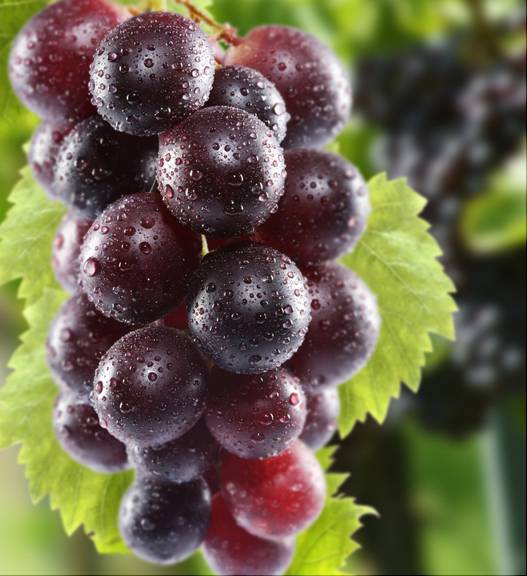Products
Contact us
- Changsha Herbal Ingredient Co.,Ltd
- Tel: 0086-731-88250818
- Add:No.56,Zhanxing Rd,Changsha,China,410205.
 sales@herbal-ingredient.com
sales@herbal-ingredient.com CHI-extracts
CHI-extracts

Grape Skin Extract-Resveratrol
Latin Name:Vitis Vinifera L.
Active Ingredient:Resveratrol
CAS No:501-36-0
Specification:5%,10% HPLC
MOQ:1kg
Lead Time:Within 7days after confirming order
Grape is the single most abundant fruit harvested in the world from which a natural color is commercially obtained. Grapes are highly pigmented with anthocyanins, a pool of colorants responsible for the purple, violet, blue, magenta, red and orange color of many fruits, vegetables and flowers. Anthocyanins are often extracted from the grape skin remaining after wine crushing or from "leas," the sediment at the bottom of barrels from the wine aging process. Most recently, additional sources of anthocyanins have become available, from grape juice of selected varieties, from vegetable juice extracts (cabbage and carrot), and from other berries (Aronia).
Grape Skin supplement is an easy way to enjoy the many health benefits provided by nutritious grapes. Packed with vitamins and minerals, Grape Skin's proanthocynidins are the phytonutrients that are thought to provide a high degree of antioxidant capacity that fights free radical damage in the body. The resveratrol in Grape Skin is said to help fight carcinogens, lower cholesterol, combat cardiovascular disease and diminish damage caused by stroke.
What is resveratrol:
Resveratrol (trans-3,5,4'-trihydroxystilbene), belongs to a class of polyphenolic compounds called stilbenes , found largely in the skins of red grapes and root of Polygonum cuspidatum Sieb. et Zucc ( Japanese knotweed), is a component of Ko-jo-kon, an oriental medicine used to treat diseases of the blood vessels, heart and live.. Resveratrol is a fat-soluble compound that occurs in a trans and a cis configuration (see figure 1). Both cis- and trans-resveratrol also occur as glucosides (bound to a glucose molecule). Resveratrol-3-O-beta-glucoside is also called piceid.
Benefit:
1.Cardiovascular Effects
2.Anti-Cancer-Related Effects
3.Direct Antioxidant Activity
4.Inhibition of Vascular Smooth Muscle Cell Proliferation
5.Inhibition of Platelet Aggregation
Safety & Adverse Effects:
Resveratrol is not known to be toxic or cause adverse effects in humans, but there have been few controlled clinical trials. In rats, daily oral administration of trans-resveratrol at doses up to 300 mg/kg of body weight for 4 weeks resulted in no apparent adverse effects .
With regard to good coronary health, Grape Skin may be very helpful in reducing platelet aggregation (clotting) in the blood, thereby reducing the risk of arteriosclerosis, stroke and heart attacks. Researchers at Northwestern University Medical School have found that a chemical in red wine is a form of estrogen called resveratrol (highly concentrated in the skin of grapes), and it may reduce the risk for cardiovascular disease. ( Resveratrol has a molecular structure similar to that of diethylstilbestrol, a synthetic estrogen.) The resveratrol in Grape Skin is said to raise the levels of high-density lipoproteins (HDLs or "good" cholesterol) in the blood, while decreasing the low-density lipoproteins (LDLs, or "bad" cholesterol) and thereby possibly helping to prevent heart attacks and strokes.
It is also said to prevent fat in the bloodstream from sticking together and clogging the arteries, which is thought to promote better circulation of blood throughout the body, especially to the heart.
Grape Skin may help to minimize brain damage from strokes.
Research has discovered that resveratrol can absorb free radicals, stopping them from doing any more damage to the brain.
The phytonutrients that contribute to the grape vine's resistance to viruses are thought to protect against some viral infections in humans as well.




